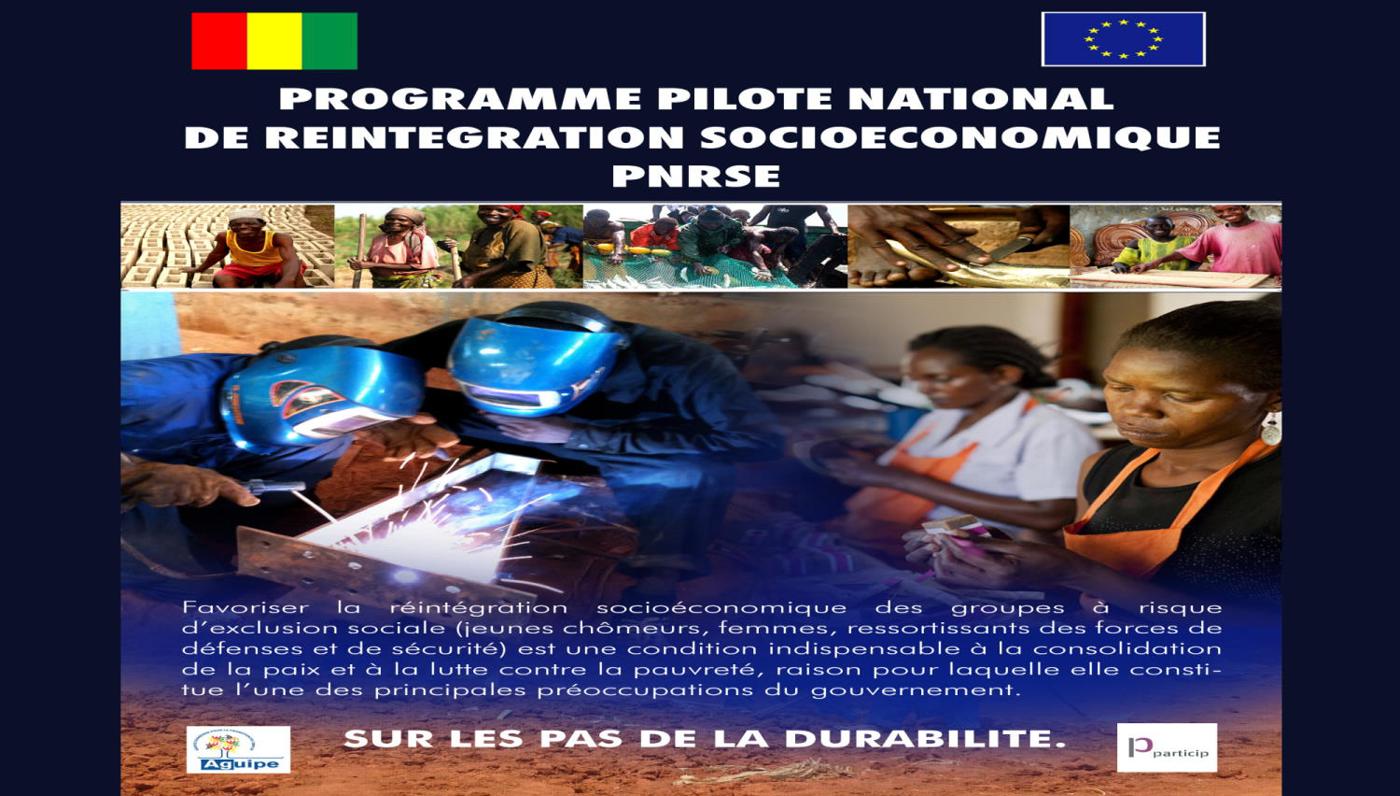
Project reference
13-0326-000-GIN-PARSS-RSE
Contract duration
2014 - 2019
Budget
2,545,528
Countries
Guinea (Conakry)
Keywords
Civil society, Governance, Institutional development, Training
Technical Assistance for the Implementation of the Socio-economic Reintegration Component of the Programme to Support the Reform of the Security Sector (PARSS-RSE) in the Republic of Guinea
The socio-economic reintegration component of the Programme to Support the Security Sector Reform (PSSSR-SER) focused on the socio-economic reintegration of vulnerable populations that have emerged including defence and security forces that were restructured. Thus, the technical assistance supported the implementation of the National Programme for Socio-economic Reintegration (NPSER) .
The NPSER formed part of the Security Sector Reform and was in keeping with the goal of helping to stabilise the country, to smooth the path towards peace consolidation. The NPSER was designed using an innovative approach, targeting sustainability and resilience by (i) integrating the most vulnerable members of the community at risk of being socially excluded (former defence and security forces), into the target group, and (ii) rehabilitating the target group by getting them involved in economic activities at community level, initiated and supervised by partner civil society organisations.
The approach involved the following steps:
The implementation of the NPSER was divided into three (3) phases, supporting the participants for a four-year period.
Phase 1 (inclusion) :
The NPSER formed part of the Security Sector Reform and was in keeping with the goal of helping to stabilise the country, to smooth the path towards peace consolidation. The NPSER was designed using an innovative approach, targeting sustainability and resilience by (i) integrating the most vulnerable members of the community at risk of being socially excluded (former defence and security forces), into the target group, and (ii) rehabilitating the target group by getting them involved in economic activities at community level, initiated and supervised by partner civil society organisations.
The approach involved the following steps:
- social dialogue, social cohesion and reconciliation,
- rehabilitation and socio-economic reintegration of vulnerable populations, including ex-combatants, in partnership with civil society organisations working in the programme intervention areas
- economic recovery in local communities, and
- capacity building for participants, local actors, and the institutional partnership, sensitisation, provision of security, and communication.
The implementation of the NPSER was divided into three (3) phases, supporting the participants for a four-year period.
Phase 1 (inclusion) :
- creation of temporary jobs and of individual capital for the participants
- rebuilding of the communities with a commitment from all parties concerned (participants, local authorities, civil society organisations, the private sector).
- choice of participants in manufacturing or service activities,
- self-help by creating sustainable jobs and reviving income-generating activities.
- consolidation of the jobs created and the initatives taken by the participants through networking
- help in creating associations and cooperatives to better manage the value chains.
Partners
Particip (Lead), AOAV, EMI (formerly: Cardno Belgium)